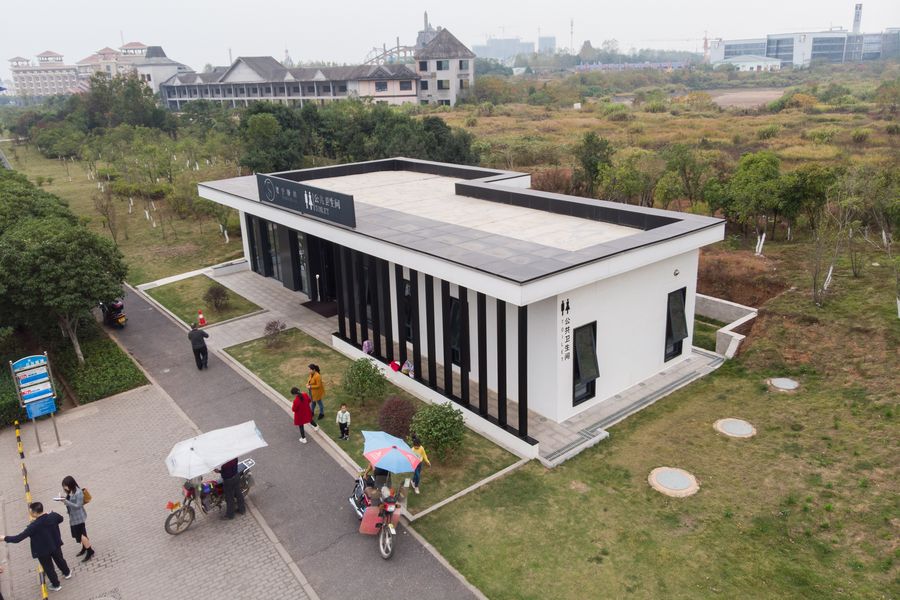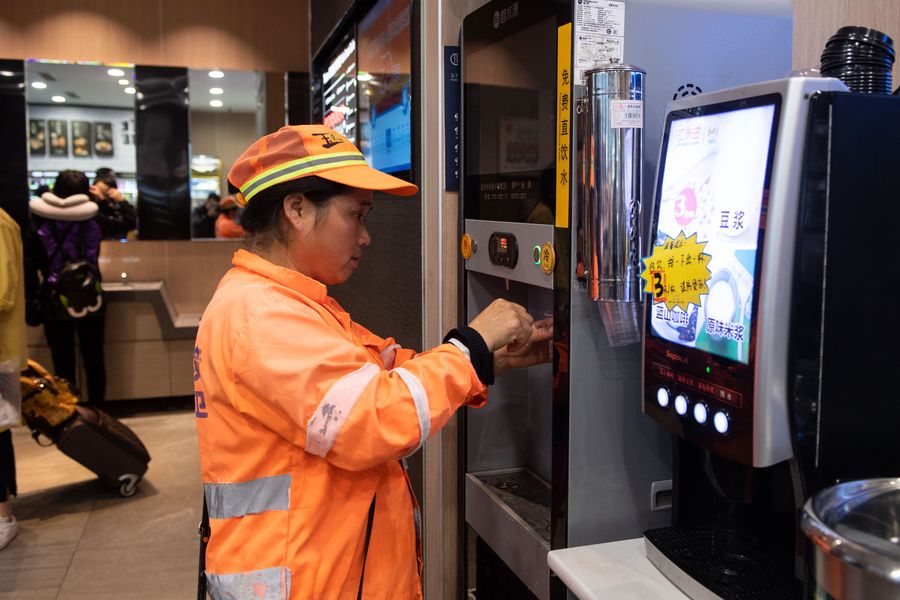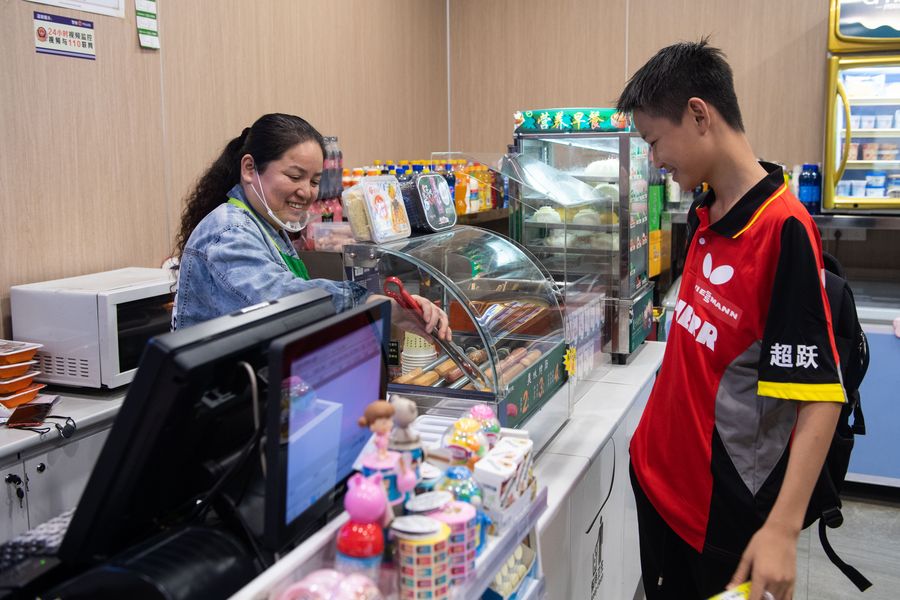
Aerial photo taken by drone shows a public toilet known as "Jianning Station" in Zhuzhou City, central China's Hunan Province, Nov. 17, 2019. (Xinhua/Chen Sihan)
China launched the "toilet revolution" in 2015 to increase the number and improve the sanitation of toilets at tourist sites. The campaign expanded to improve public toilets in cities and build better private toilets in rural areas.
In 2018, China built and renovated toilets in 10 million households, and in the first half of 2019, toilets in another 10 million households in rural areas were under construction or renovation, according to the Ministry of Agriculture and Rural Affairs.
CHANGSHA, Nov. 20 (Xinhua) -- Convenience stores, free wifi access and mobile phone charging stations -- all these services are available in the upgraded public toilets in Zhuzhou City, central China's Hunan Province.
For citizens in the city, public toilets that were once dirty and stinky have remarkably become a popular destination where they can spend leisure time with their families.
Jiang Yanji, 40, goes to one of the public toilets near a plaza in the city almost every weekend with her 11-year-old son. Stepping into the public toilet with the pleasant fragrance of soy milk in the air, Jiang's son rushes to the counter at a convenience store inside the toilet building, buying some meatballs and sausages and sharing them with his mother.
"It sounds strange to eat food here," Jiang laughed. "But the old dirty and smelly toilets have been replaced by these spotless facilities."
Jiang was the 1,730th guest to arrive at the toilet that day, according to the data displayed on a large screen in the toilet, which also shows the real-time temperature, humidity and the density of ammonia and hydrogen sulfide.

A sanitation worker gets direct drinking water in a Jianning station in city of Zhuzhou, central China's Hunan Province, Nov. 17, 2019. (Xinhua/Chen Sihan)
The local government officially began its urban "toilet revolution" in 2018, upgrading public toilets to provide convenience for citizens. There are 144 such public toilets, known as "Jianning stations," that have been put into operation across the city.
The public toilets also provide free water, communal umbrellas and power banks and serve as a point of contact for missing children and senior citizens.
Huang Weiying, 44, works as a cashier in a convenience store inside a Jianning station. "At first I was hesitant about working in a public toilet," said Huang. "But now, I invite all my friends to come for a visit."
The customers of the convenience store where Huang works can reach up to 3,000 per day. Nearby office workers come and grab some breakfast, while the pedestrians use the toilet and wait for buses in front of the station.
"The city aims to build 200 Jianning stations across the city by the end of 2019," said Liu Jian, the deputy director of Zhuzhou Urban Management and Law Enforcement. "The stations do more than just provide a place to go to the bathroom, they provide eight different services free of charge, with convenient access 24 hours a day."

A student buys snacks at a Jianning station in city of Zhuzhou, central China's Hunan Province, Nov. 17, 2019. (Xinhua/Chen Sihan)
China launched the "toilet revolution" in 2015 to increase the number and improve the sanitation of toilets at tourist sites. The campaign expanded to improve public toilets in cities and build better private toilets in rural areas.
In 2018, China built and renovated toilets in 10 million households, and in the first half of 2019, toilets in another 10 million households in rural areas were under construction or renovation, according to the Ministry of Agriculture and Rural Affairs.
Liu Shaohong, a villager from Sanjiao Village in the province, was previously opposed to the campaign, but was converted having witnessed the revolution in her own home. "The old privy stank and there were a lot of flies and mosquitoes," said Liu, who installed a new flush toilet thanks to a government subsidy. "The toilet is clean and the air is fresh with just the press of a button on my new flush toilet."
"A small but neat toilet is a matter of dignity," said Liu. "What we are doing is also about bringing a sense of satisfaction to every citizen." ■



